Who Is Ron Ben-Israel?
If you have any connection to the culinary world, chances are small that you haven’t heard about Ron Ben-Israel. Ron is a Cake Designer, who humbly refers to himself as a Baker. He is the Executive Pastry Chef and owner of Ron Ben-Israel Cakes, and his story and inspiration come from his early childhood and his Viennese mother. He was a host of a popular cooking competition called “Sweet Genius.” Ron is currently living and working in New York.
As many have said, Ron Ben-Israel is the Manolo Blahnik for wedding cakes.
From a Pizza Parlor to One of the Most Recognized Cake Designers
Ron Ben-Israel started his culinary career during his early childhood. He first got involved in the baking world by the magical cakes his mother used to make in the beautiful city of Vienna. Ron went into a pizza parlor later to earn pocket money and became a local sensation. He was skilled in tossing and throwing the pizza dough and people used to stop by to watch him.
With his artistic side, Ron started attracting the right opportunities and the right people and he eventually got into baking as a profession. Attending a lot of classes and drawing inspiration from every possible corner, Ron Ben-Israel soon became one of the most valued and renowned cake designers.
In this interview, he spoke about his beginnings, inspirations, work-life balance and secrets to becoming who he is today. Read this inspirational story, but don’t forget a cup of tea and a piece of cake while you're reading.
What inspired you to join the culinary world?
Ron Ben-Israel: It’s funny, Hollywood makes it seem like the culinary world is this glamorous dream job. But life, and especially career paths, don’t really go in straight lines. For me, it started in the most unplanned way. I just needed to pay rent.
I grew up in a creative household. My mom, from Vienna, taught me how to bake. I was always active and always wanted to create. My first job? Whipping egg whites for meringue. I was fascinated by how something as simple as air and sugar could turn into this mountain of deliciousness. That magic — the transformation — really captivated me. But I never thought it would lead to a career.
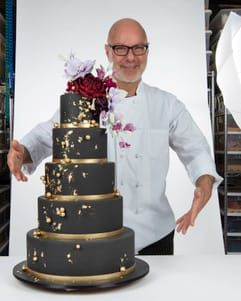
As a kid, I actually worked at a pizza parlor. I was just 11, flipping pizzas to make some pocket money during the long summer months. People came in just to watch me, this little boy throwing dough in the air. There was something about the connection between food and performance that stuck with me. But professionally, I went in a completely different direction. I studied art for four years, focusing on sculpting and sketching — things that would become surprisingly useful later.
For the first 15 years of my career, I wasn’t baking cakes. I was a professional dancer, completely immersed in that world. But around the age of 40, my body started to feel different, and I had to face the reality that I couldn’t dance forever. I moved to New York, needing to find a way to support myself, and I took on all kinds of jobs — some in fashion, some in catering — anything to get by.
One day, through a design job, I was asked to create little cakes to display china in a showroom. People started asking, ‘Who made these?’ That was the turning point. Word spread, and soon enough, I was getting orders for cakes. I never set out to have a career in cake design, but the demand kept growing.
And then, Martha Stewart walked into my life. She discovered my cakes in a jewellery store window on 5th Avenue and invited me to collaborate on her new wedding magazine. That opened doors I didn’t even know existed. For the next 20 years, I created cakes for her magazine, and it really put me on the map.
I didn’t plan any of this, nor did I study cake design, instead I learned by doing. Along the way, I found incredible mentors who helped me grow — people like Betty Van Norstrand, who taught me the craft of cake design, and Rose Levy Beranbaum, the author of “The Cake Bible.” I even wrote her a letter, and to my surprise, she invited me for coffee. That turned into a lifelong friendship and mentorship.
Looking back, it wasn’t a straight path, but I believe that’s the beauty of it. You can’t force success or popularity; you work toward it, keep learning, and hope the results will be positive.
What started as a way to pay rent became a passion, and now, even as I teach others, I’m still learning every day.
How can young people get mentorship?
Ron Ben-Israel: That’s a great question. I get asked about mentorship daily. People approach me via my email, social media, or even my phone number.
People ask to come in and observe, and as much as I want to accept and mentor everyone it’s not possible. So, my biggest recommendation for everyone starting out is to go to school. There is no substitution for education in this line of work.
If you are a part of a school, they will have all these amazing programs and they will tell you which one you fit in the best.
However, I understand that some people just want to start working with us, but there is a way to do it.
If you want to start with us, we need to see your portfolio, the cakes that you have created before. The things we look for in our interns are personality, confidence and discipline. Because a lot of people think that this is the right career path until they need to make 1,500 sugar flowers.
Some of the best interns we have had come in through recommendations. I would like to add one thing here, please don’t be fooled that you can learn cake design online. YouTube is a great way to observe someone else's technique, but you won’t master the art by watching videos. The only way to learn is through school and internships.
What would you suggest to young people who want to become cake designers?
Ron Ben-Israel: I love your question because that is something I would ask myself too. I believe that people tend to limit themselves to one discipline.
You must learn how to decorate, but you can’t be afraid to draw inspiration from other fields.
When I started out, I rejected the typical cake designs of the time — lots of piping and very traditional flowers. Instead, I looked at fashion design for inspiration, drawing from bridal trends and even architecture.
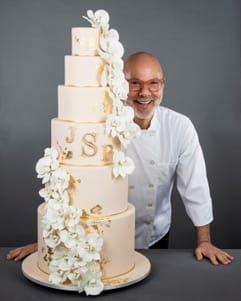
You need to explore different materials and techniques.
I used to collect little molds from flea markets, study fabric textures, and incorporate those elements into my cakes. I even went as far as learning from florists about upcoming color trends or observing the details of different venues to bring elements of architecture into my designs. It’s all about thinking outside the box.
I also recommend taking courses that might seem unrelated at first—like drawing, sculpture, or even knitting—because they can help develop your skills in unexpected ways. Cake design is an art form, so embrace all types of inspiration, whether it’s fashion, nature, or even a Broadway show.
Creativity doesn’t have limits; the more you expose yourself to, the more innovative your designs will be.
What are the biggest challenges of running a cake business?
Ron Ben-Israel: You would assume that as a creative person, I don’t enjoy the business side of things, but that is simply not correct. I love the business side.
I enjoy meeting the clients and believe it or not until today I try to meet most of the clients myself.
Receiving the money for the business and spending it on our creative employees is an enjoyable feeling, and every business owner should enjoy running the business to be able to experience this feeling.
There is something I don’t like and that is arguing about the value of our work. I wouldn’t call it a challenge, but I simply don’t like doing this. When people start with their demands, I usually ask them about their budget, because you can’t have gold on your cake unless it’s 22 carats, because it is simply not safe to eat. So, when people have unrealistic demands but are not willing to pay money, I suggest they go to some other place.
One of the biggest challenges is dealing with financials, looking at the accounts and not knowing if you will have the money to cover the rent. But luckily for us that is not happening, we have been in the business for a while, and we can maintain and grow it.
The biggest challenge brings in the biggest joy in business and that is seeing your team and business grow. One of the biggest joys that this job brings is meeting an endless resource of creative people from all backgrounds. This is a beautiful job to have
Dare we ask, what about work-life balance?
Ron Ben-Israel: Work-life balance? That's a huge question! Honestly, I don’t always feel like I have the right answer for it because, well, I don't always feel balanced.
Running a business, filming TV shows, and maintaining personal commitments—it’s not easy. But I’ve been lucky to have a team I trust back at home, which has made it a little more manageable, especially when I’m away filming.
Shooting a TV show can be incredibly demanding. You’re working 12- to 18-hour days for over a month at times. It’s exhausting, but there’s this energy from the contestants and the cameras that’s so exciting it keeps you going. Still, it's difficult when you’re on set and trying to run a business at the same time, dealing with different time zones and managing everything remotely.
There have been moments when I lost my temper or felt overwhelmed, but I always try to reflect on them, apologize when needed, and learn from them. I think the key isn’t always about finding perfect balance, but rather managing it the best you can and being kind to yourself when things get hectic.
One of the best tips I’ve gotten from my staff is to take a break and have some tea — it really does solve everything. Well, that and cake, of course!
The Story of Ron Ben-Israel: One of the Best Bakers
If you are a creative soul that draws inspiration from everything around you, chances are you can build a Baker career. Now there is one Ron Ben-Israel, but if you are creative, dedicated and disciplined you might work with his team.
The biggest lesson you can learn from him if you want to become a Baker is that learning never stops. Go to school, ask for mentorship and don’t limit yourself to one discipline. If you are searching for inspiration on building your Baker career, jump to some of the magical cakes Ron has created.
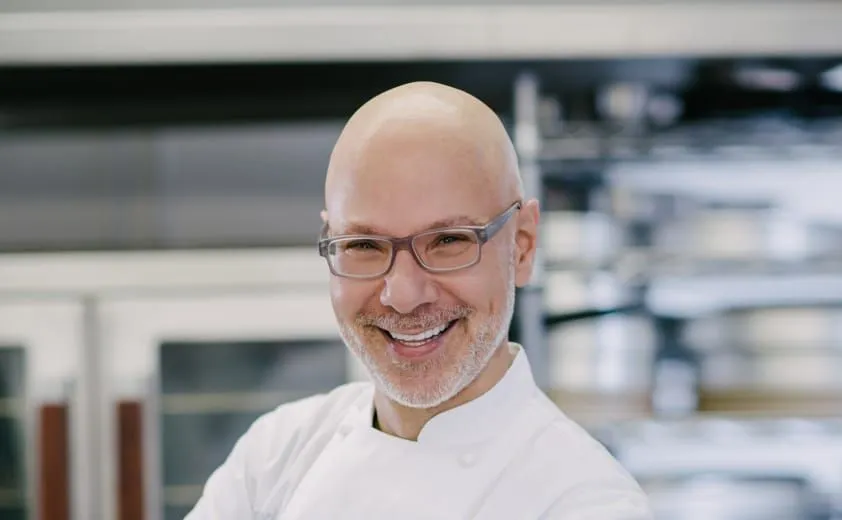

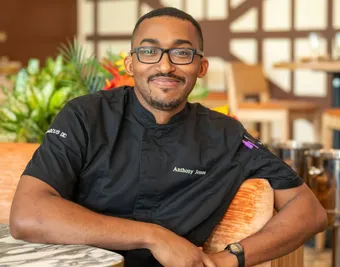
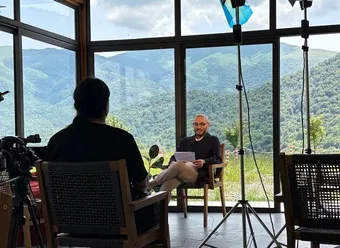

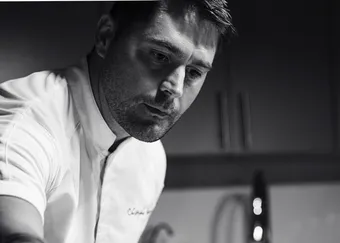
Loading comments...